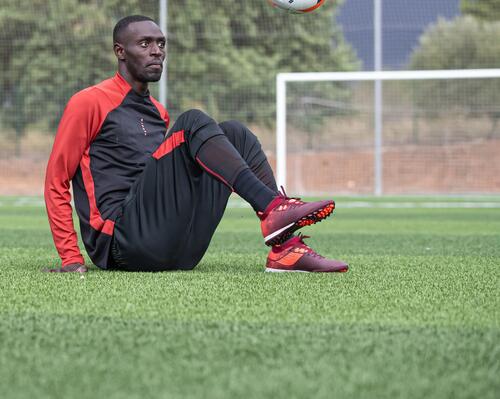Take the time to warm up
The biggest problem when you're a veteran: avoiding injury. In your mind you're still 20 years old and you play as if that's the reality, but it's not. When you play with friends after work, or with colleagues at lunchtime, the difficulty is wanting to go straight onto the pitch and get to grips with the ball without warming up. The other problem is arriving at the last minute for your match, and again, not taking the time to warm up properly.
Two classic errors which can lead to injury, particularly when we know that 80% of injuries in team sports are linked to a lack of warming up. And the older you get, the more difficult it is to recover.
We recommend warming up for around 15-20 minutes, essential for minimising your risk of injury.









